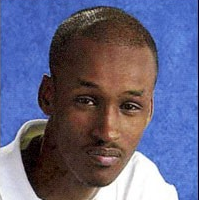First Case of Criminal Defendant Challenging Warrantless Spying
 Mohamed Osman Mohamud
Mohamed Osman Mohamud
The National Security Agency’s (NSA) warrantless surveillance program is facing its first challenge from someone convicted of attempted domestic terrorism after federal prosecutors used evidence obtained through the controversial spying method.
Mohamed Osman Mohamud of Oregon was found guilty last year of attempting to use a weapon of mass destruction at a Christmas tree lighting ceremony in Portland in November 2010.
A Federal Bureau of Investigation sting operation caught Mohamud, who was apprehended while trying to detonate what turned out to be a phony bomb.
His lawyers learned in November 2013 that the Department of Justice used information from the NSA’s warrantless spying to convict him—a discovery that resulted in a delay in his sentencing.
Mohamud’s legal defense team claims he was entrapped by the FBI, and that if it wasn’t for the sting operation, their client, who was 19 years old at the time of the incident, would never have tried to blow up the ceremony.
His attorneys this week filed a motion in a Portland federal courthouse seeking discovery of information that could challenge the constitutionality of the law authorizing the surveillance without a court order.
The lawyers also hope Mohamud will get a new trial on grounds that he was not informed until after his conviction of the NSA-obtained evidence used against him.
That “raises a wide range of serious issues regarding suppression of unlawfully or unconstitutionally obtained evidence, dismissal or other sanctions based on the government’s intentional violation of governing rules, and, at least, a new trial based on new evidence of governmental overreaching,” Stephen Sady, one of the three lawyers defending Mohamud who filed the motion, wrote.
The NSA warrantless wiretapping program was previously challenged in the U.S. Supreme Court by a group of lawyers, journalists and human rights organizations. But the lawsuit was thrown out because the plaintiffs could not prove they were spied on by the agency.
In that case (Clapper v. Amnesty International), Solicitor General Donald B. Verrilli Jr. told the court that it was just a matter of time before a criminal defendant came forward to challenge the law.
Jameel Jaffer, an American Civil Liberties Union attorney who argued before the Supreme Court on behalf of the plaintiffs in Clapper v. Amnesty International, welcomed Mohamud’s motion.
“For five years the government insulated this statute from judicial review by concealing from criminal defendants how the evidence against them was obtained,” Jaffer told The Washington Post. “But it’s almost certain that the statute will be tested in this case. There’s no question that this defendant has both the right to more information about the way that the statute was used against him and a right to challenge the statute’s constitutionality.”
-Noel Brinkerhoff
To Learn More:
Man Convicted in Terror Case Seeks Evidence from Warrantless Spying (by Ellen Nakashima, Washington Post)
Judge Suspends Sentencing of Would-Be Bomber after NSA Revelations (by Carrie Johnson, National Public Radio)
Is the FBI Encouraging Terrorist Plots In Order to Stop Them and Boost Their Success Rate? (by Noel Brinkerhoff, AllGov)
- Top Stories
- Unusual News
- Where is the Money Going?
- Controversies
- U.S. and the World
- Appointments and Resignations
- Latest News
- Musk and Trump Fire Members of Congress
- Trump Calls for Violent Street Demonstrations Against Himself
- Trump Changes Name of Republican Party
- The 2024 Election By the Numbers
- Bashar al-Assad—The Fall of a Rabid AntiSemite






Comments